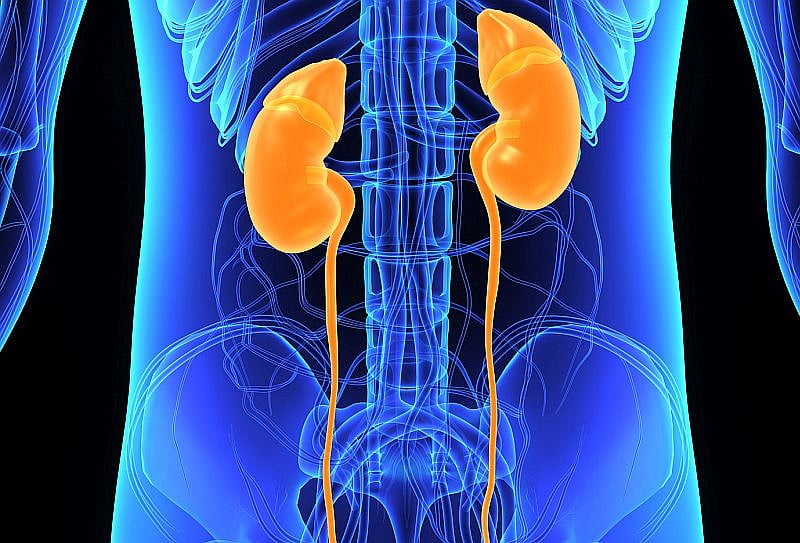(330) 876-1228
8507 Main StreetKinsman, OH 44428
(330) 876-1229

COVID-19 patients are at risk for serious long-term kidney damage, according to the results of a new investigation.
The damage appears to come from the virus' ability to directly infect the kidneys. And in some cases, the scarring and damage may last well beyond the COVID infection itself, German, Dutch and American researchers said.
The study was an in-depth look into how kidney tissue was affected after being exposed to SARS-CoV-2 in a lab setting.
"Others have already demonstrated that the [corona]virus can infect kidney cells in patients, and this is something we also observed," noted study author Dr. Rafael Kramann, director of the Institute of Experimental Medicine and Systems Biology at University Hospital RWTH in Aachen, Germany. "However, what was surprising is that COVID-19 was also associated with fibrosis -- scar formation -- in a patient's kidneys."
And that scarring is no small thing, Kramann said, because it can ultimately "destroy the architecture of the organ and lead to organ failure."
These observations follow the findings of an earlier investigation released in September.
That effort tracked 89,000 veterans who had developed COVID, and found a notably elevated risk for persistent kidney damage among both seriously ill hospitalized patients and even those whose COVID had been relatively mild.
Kramann and his colleagues said the main question at the outset of their investigation was not whether COVID can trigger kidney damage. That much was already clear, they said.
Instead, the team wanted to know whether the damage was an indirect by-product of the inflammation triggered by a patient's immune response to COVID, or whether the coronavirus was directly infecting the kidneys.
To find out, the team harnessed stem cell technology to fashion what essentially amounted to "mini kidneys" -- for testing purposes only.
This lab-cultured kidney tissue was then exposed to SARS-CoV-2.
The result: The virus caused direct damage to kidney cells, apart from any inflammatory immune response. And that damage resulted in long-lasting scarring.
The study only focused on the kind of scarring risk associated with very severe COVID illness, Kramann emphasized. It remains unclear whether direct infection of kidney tissue would cause similarly serious damage among patients with milder COVID infections, he said.
Kramann said it's too soon to say whether new antiviral medications might help minimize the risk of kidney damage among seriously ill COVID patients. "Yes, this might be the case, but we have not studied this particularly," he said.
Dr. Ziyad Al-Aly, director of the clinical epidemiology center at the VA St. Louis Health Care System, reviewed the findings.
"We have known for some time now that long COVID can also manifest in the form of new onset kidney disease, but we did not know the mechanism," he said. "This study provides some answers."
The research, Al-Aly said, clearly shows that the virus can infect kidney cells and that scarring may result.
"This is the kind of kidney damage that results in deterioration of kidney function, kidney disease, and is generally irreversible," he said.
As to which COVID patients might be most vulnerable, Al-Aly noted that the study didn't address this question.
"But we generally know that while long COVID can happen even in people with asymptomatic or mild acute disease, the risk is higher in people who had severe acute disease, people who were really sick when they first got infected," he said.
He and Kramann agree that it may be shown that newly developed antiviral drugs can reduce the risk for long COVID.
"But this is not yet proven," Al-Aly added. "The best advice that I can give now is to avoid COVID."
The findings were published Dec. 24 in the journal Cell Stem Cell.
More information
There's more about COVID-19 and kidney damage at the U.S. National Kidney Foundation.
SOURCE: Rafael Kramann, MD, PhD, professor, medicine, and director, Institute of Experimental Medicine and Systems Biology, University Hospital RWTH, Aachen, Germany; Ziyad Al-Aly, MD, chief, research and development service, and director, clinical epidemiology center, VA St. Louis Health Care System, and assistant professor, medicine, Washington University School of Medicine in St. Louis; Cell Stem Cell, Dec. 24, 2021
